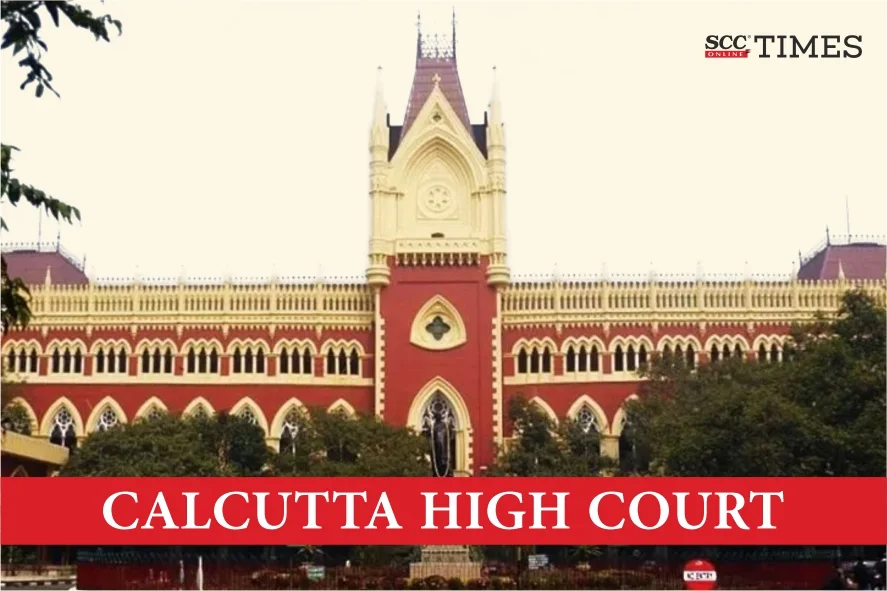Calcutta High Court: A petition was filed by Joint Platform for Doctors (petitioners) an umbrella association of doctors and citizens challenging an order dated 14-10-2024 issued by the Commissioner of Police under Section 163(1) and (3) of the Bhartiya Nagarik Suraksha Sanhita (BNSS), 2023 prohibiting any unlawful assembly of five or more persons in Kolkata on the grounds that such assemblies could breach public peace and tranquility during the “Immersion Carnival” (visarjan) organized by the State. Ravi Krishan Kapur, J., permitted the doctors to hold the “Droher Carnival- Doctors and Citizens Assembly” and directed the State to put barricades and/or guard rails between Rani Rashmoni Avenue and Red Road to ensure that no breach of peace occurs.
The Court also directed “The police shall also make necessary arrangements for security with a required number of police personnel to ensure that there is no breach of peace at the proposed “Droher Carnival”. The organizers of the rally are also requested to have enough volunteers to ensure that no breach of peace occurs.”
The petitioners consist of a doctors’ association, a member doctor, and a concerned citizen, all advocating for justice in response to a horrific incident, the alleged rape and murder of a trainee doctor. Their primary grievance arises from the refusal of the Kolkata Police to permit them to conduct the “Droher Carnival” on 15-10-2024, at Rani Rashmoni Road, a peaceful assembly meant to highlight the issue and demand justice. The rejection of their request was formalized in a communication from the Commissioner of Police on 13-10-2024. The Commissioner’s decision was based on concerns that the demonstration would coincide with the ongoing Pujo “Immersion Carnival,” and that it could potentially disrupt the safety and security of participants and visitors.
Following the rejection, the Commissioner issued a blanket order prohibiting any public assembly on the same day in Kolkata, citing the need to prevent disturbances during the Pujo celebrations.
Counsel for the petitioners contended that the refusal to allow the Droher Carnival and the subsequent order prohibiting assemblies violated their fundamental rights under Articles 19(1)(a) and 19(1)(b) of the Constitution, which guarantee freedom of speech and the right to assemble peacefully. They argued that the restrictions were disproportionate, arbitrary, and lacking justification under the law. The petitioners also submitted that the ban on public assemblies was excessive, as it imposed a blanket restriction that extended far beyond the legitimate purpose of maintaining public order. They contended that peaceful protests are an essential part of democracy, and restricting their right to assemble based on hypothetical fears of disturbance during a different event was unwarranted.
Counsel for State argued that the timing and location of the Droher Carnival posed a potential threat to public order and safety, given its proximity to the Pujo Immersion Carnival on the same day. The State justified the refusal of permission on the grounds that holding two major public events simultaneously in nearby locations could lead to chaos and disruption. The State emphasized the need for balance between the right to protest and maintaining public order. It also submitted that the matter raised by the petitioners was already under consideration by the Supreme Court in a related case, thereby arguing that the High Court should refrain from passing any orders.
The Court acknowledged the fundamental right of citizens to protest peacefully, emphasizing that such rights are protected under the Constitution and are crucial in a democratic society. The Court observed that while the right to protest is a cornerstone of democracy, any restriction on this right must meet the test of reasonableness and necessity in maintaining public order. The Court was critical of the blanket prohibition imposed by the impugned order, noting that the scope of the restriction was excessive and disproportionate to the purported aim of preventing a breach of peace during the Pujo Immersion Carnival.
The Court found that the concerns raised by the State were speculative, as there was no evidence that holding the Droher Carnival would necessarily lead to a breakdown of law and order. Additionally, the Court rejected the State’s proposal that the petitioners could postpone their event or choose a different venue, emphasizing that such conditions imposed an unreasonable burden on the petitioners’ right to freely assemble.
The Court remarked that “the failure of the impugned order to provide a substantial basis for restricting public assembly led the court to conclude that it was arbitrary and an overreach of executive power.”
Thus, the Court allowed the writ petition and held that the petitioners had the right to hold the Droher Carnival on 15-10-2024 at Rani Rashmoni Road as planned and directed the State to put in place adequate security measures, including barricades and police personnel, to ensure that both the Droher Carnival and the Pujo Immersion Carnival could take place without any disturbances. The Court dismissed the State’s prayer to stay the operation of its order, directing that the order be communicated immediately to ensure compliance.
[Joint Platform of Doctors v. State of WB, 2024 SCC OnLine Cal 9414, decided on 15-10-2024]
Advocates who appeared in this case :
Mr. Bikash Ranjan Bhattacharyya, Sr. Adv., Mr. Samim Ahammed, Mr. Tapas Maity, Mr. Siddhartha Sankar Mondal, Mr. Satwick Majumdar, Mr. Saptarshi Banerjee, Mr. Rajit Lal Maitra, Mr. Arka Maiti, Ms. Ambiya Khatoon, Mr. Saloni Bhattacharjee, Mr. Nazimuddin Siddique, … Advocates for the petitioners.
Mr. Kishore Dutta, Ld. A. G., Mr. Amitesh Banerjee, Sr. Adv., Mr. Debangshu Dinda, Adv., … Advocates for the State.








